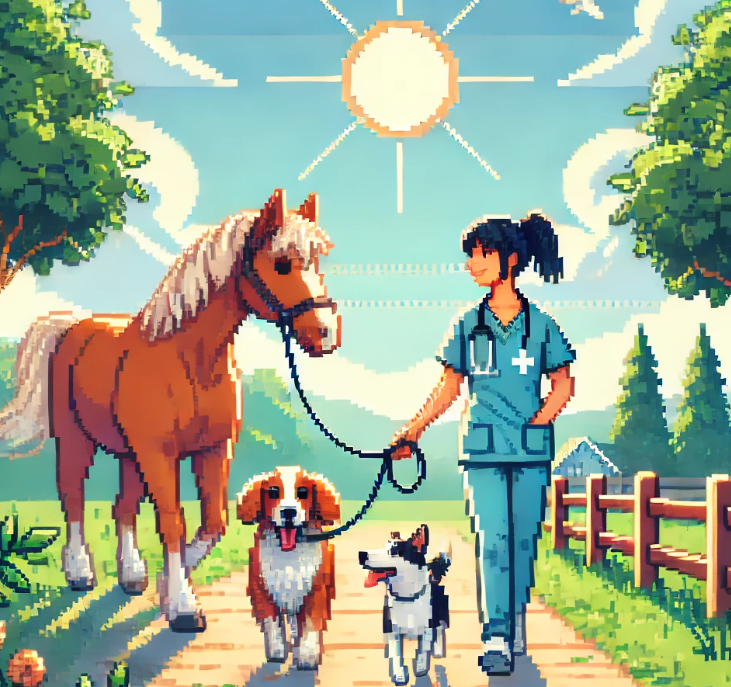
Pets, Exercise, and Mental Health: Surprising Insights for Veterinary Professionals
For pet lovers, animals are often seen as sources of comfort, joy, and companionship. But when caring for pets becomes part of your profession, does the relationship change? A recent study sheds light on the complex connection between pet ownership, exercise, and mental health—especially within the high-stress world of veterinary professionals. Whether you’re a veterinarian, vet tech, or someone who simply loves animals, these findings may surprise you and inspire a fresh look at how to care for your mental health while caring for others.
The Emotional Landscape of Veterinary Professionals
Veterinary professionals face unique challenges: long hours, emotional exhaustion, and the difficult task of euthanasia. Studies reveal that anxiety and depression rates in this field are higher than those in the general population, with one in five reporting suicidal thoughts in the past year. For a profession centered on caring for animals, the high mental health toll raises crucial questions about what helps—or hurts—well-being.
Pets and Mental Health: A Complicated Relationship
Surprisingly, the study found that pet-owning veterinary professionals reported more symptoms of depression compared to their non-pet-owning peers. But not all pets had the same impact.
- Dogs and Horses: Owners of these animals showed lower anxiety and suicidal thoughts compared to non-owners. These pets often encourage physical activity and outdoor time, both of which are known to boost mental health.
- Cats and “Other Pets”: Cat owners reported higher levels of depression and suicidal ideation. This may reflect the more independent nature of cats or the challenges some cats bring, like behavioral or health issues.
- Fish and Others: Fish owners didn’t see notable mental health benefits, likely due to the less interactive nature of these pets.
Exercise: The Unsung Hero
Regular exercise proved to be a strong ally against depression and anxiety, regardless of pet ownership. Activities like running, walking, and reducing sedentary time were associated with better mental health outcomes. Here’s what the study found:
- Running: Those who ran regularly had significantly lower levels of anxiety and depression.
- Walking: A simple walk also showed protective effects against depression.
- Sitting Less: Reducing sedentary time further improved mental health.
What Does This Mean for Pet Owners and Veterinary Professionals?
1. Choose Activities That Nurture Mental Health
Not all physical activity is created equal. If you’re struggling with anxiety or depression, consider incorporating more aerobic exercises like running or walking into your routine. Even a short daily walk can make a big difference.
2. Be Intentional with Pet Ownership
For those in high-stress professions like veterinary care, owning a pet can be a double-edged sword. If you’re considering adding a pet to your family:
- Assess Your Time and Energy: Some pets, like dogs, require regular walks and social interaction, which could support mental health.
- Know Your Limits: If you’re already overwhelmed, a low-maintenance pet might be a better choice.
3. Focus on Connection, Not Perfection
Pets can bring immense joy, but they also require time and emotional energy. If you already own a pet, focus on the positive aspects of your bond and consider activities that strengthen your relationship, like playing fetch with your dog or brushing your horse.
Broader Implications: Well-Being Beyond Pets
This research aligns with growing awareness of the mental health challenges faced by veterinary professionals. It highlights the importance of a balanced lifestyle that includes:
- Work-Life Balance: Advocate for boundaries that protect personal time and well-being.
- Community Support: Share experiences and seek peer support to navigate the unique pressures of veterinary work.
- Professional Resources: Leverage mental health services tailored to veterinary professionals, such as Vetlife or similar organizations in your region.
Share Your Pet’s Story
We want to hear from you! How has pet ownership impacted your mental health? Have you discovered an exercise routine that helps you unwind after a long day? Share your story in the comments below:
- What’s your favorite activity to do with your pet?
- How do you balance the demands of work and personal life as a pet owner?
- What’s one tip you’d share with someone considering adding a pet to their family?
Let’s create a space where pet lovers and professionals can learn from and support one another.




